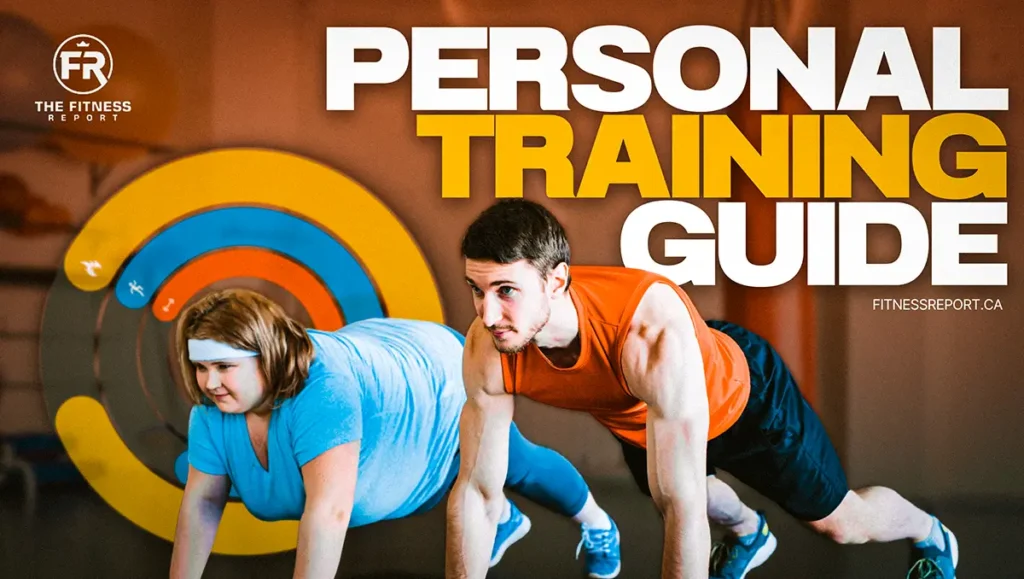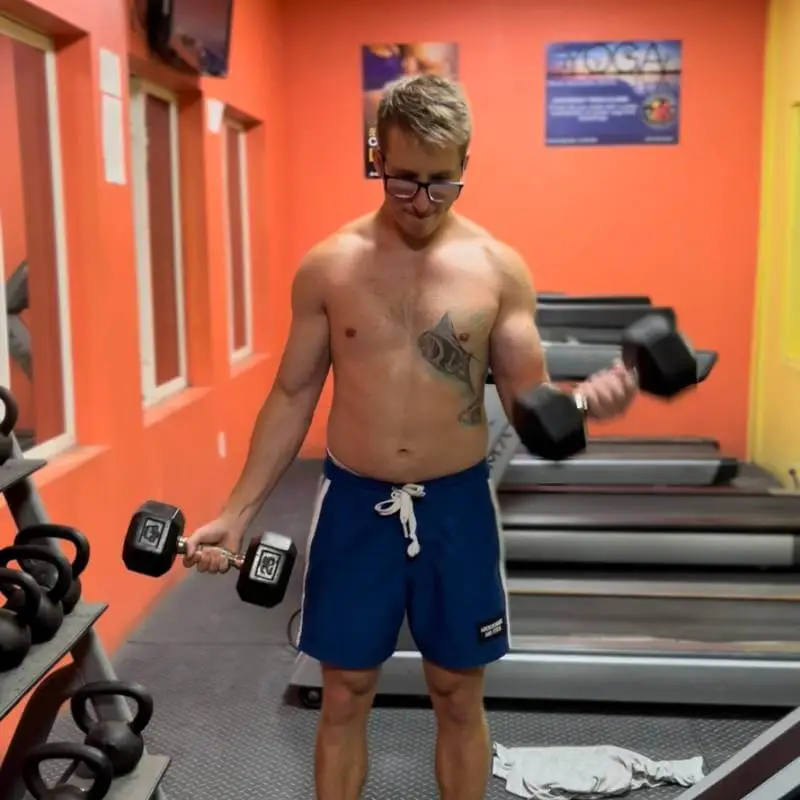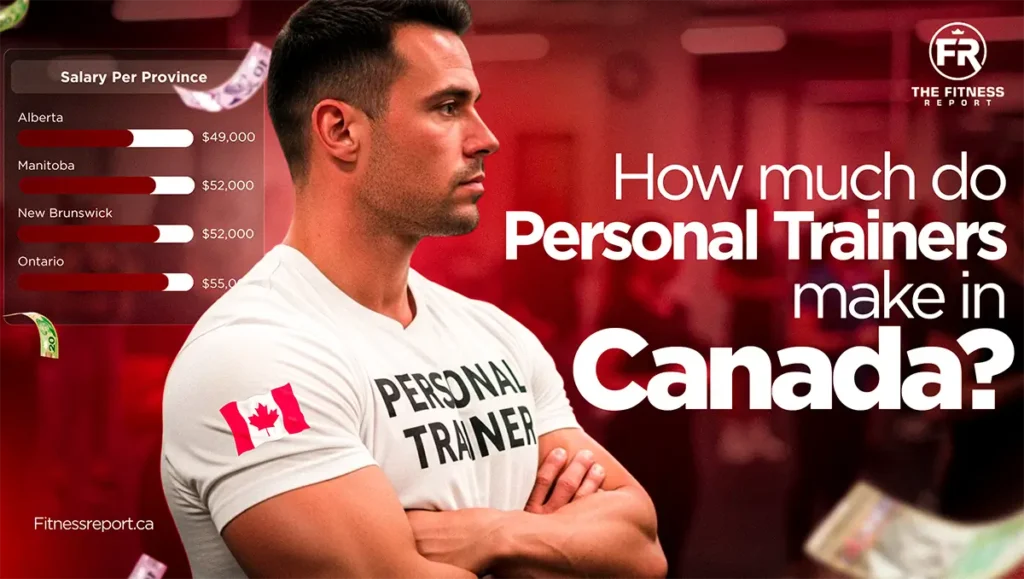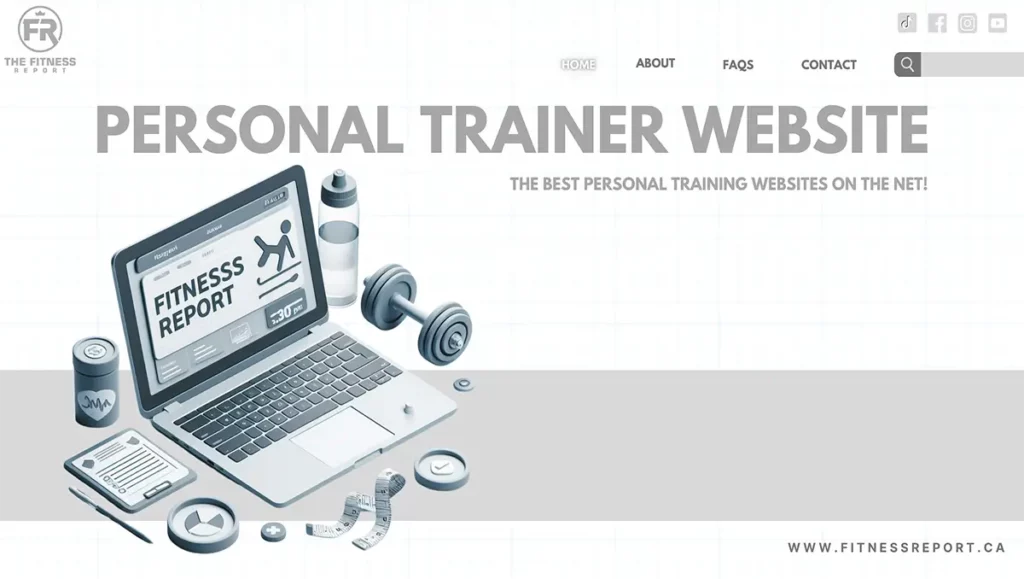Personal Training Guide
- PART ONE: Working With A Personal Trainer
- Stepping Foot in a Gym for the First Time Can Be Scary!
- When Should You Start Working with a Personal Trainer?
- How to Choose a Personal Trainer
- Vancouver British Columbia Personal Trainers
- How Much Do Personal Trainers Cost?
- In-person vs. Online Personal Training
- PART TWO: Becoming A Personal Trainer
- Are Personal Training Certifications Necessary?
- Personal Trainer Skills
- The Hard Truth of Being a Personal Trainer
- Personal Training Guide: Frequently Asked Questions
PART ONE: Working With A Personal Trainer
This is a personal training guide for anyone who has ever considered working with a personal trainer or who may be interested in becoming one.
You may have had many thoughts about working with a personal trainer.
- Is hiring a personal trainer right for me?
- If I work with a personal trainer, will they help me lose weight?
- Personal trainers can be expensive; will it be worth it?
- Can a PT help me build more muscle?
- Will my personal trainer judge me (on my weight, my form, my age, or my looks)?
These are just a few common thoughts individuals may have about working with a fitness trainer, but I am here to tell you that a professional personal trainer will be worth it, they will help you to lose weight, and they will not judge you. If you are at the gym and working hard to improve yourself, I have nothing but respect for you.
Stepping Foot in a Gym for the First Time Can Be Scary!
When you take your very first step inside a gym, it definitely can be scary and intimidating. There are many unknowns, a lot of unfamiliar faces, many physically fit individuals, and a lot of things you may have never seen before.
Me the first week inside the gym: “Ohhhh, that’s what that machine does” 😂
It may be scary, but a lot of people at your local gym are very kind and willing to help you out and give you some pointers.
In fact, I learned how to improve my technique on certain exercises either by just asking or by having others approach me and show me.
I remember one of my very first times in a gym, and I was trying to do dumbbell lateral raises with 10-pound dumbbells. I had someone come up to me and tell me I was lifting too heavy and my form was off, and I had to drop down to the bright yellow Weight Watchers weights.
I felt embarrassed for a few moments, but my form improved, and I felt better afterward.
It is now 15 years later, and I still use those bright-colored dumbbells for some exercises and on drop sets.
When Should You Start Working with a Personal Trainer?
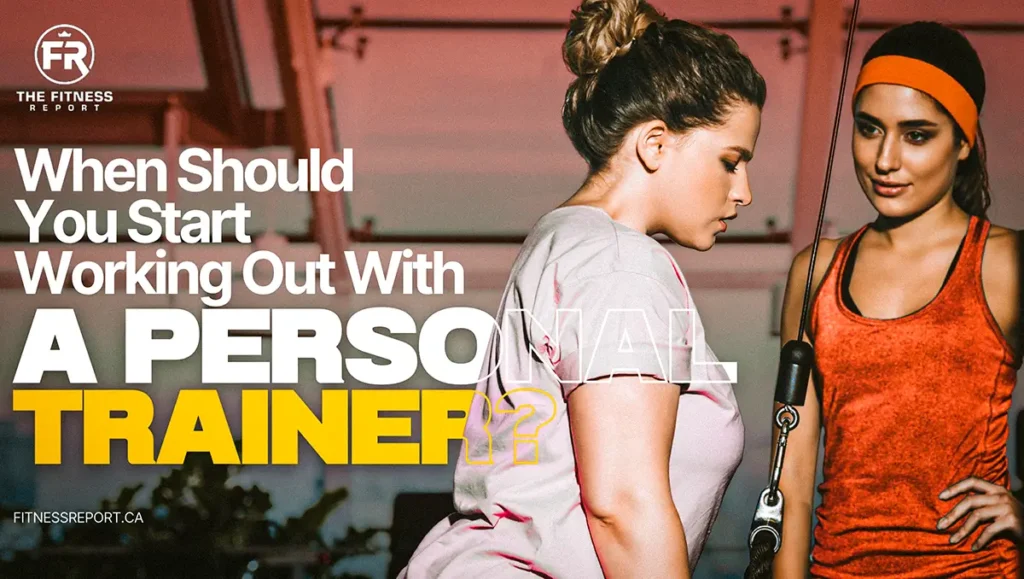
You can start working with a personal trainer at any point in your life, but most individuals usually have a specific goal they would like to achieve. Some common reasons are below:
Learning About Fitness & Getting in Shape
A personal trainer can teach and guide you through all of the basics of getting in shape. They will explain the different muscle groups, types of exercises, workout machines, a workout plan to follow, stretching, and even proper nutrition and healthy food choices.
Personally, this is why I started working with a personal trainer: I wanted to learn more about fitness and strength training. I literally knew nothing besides bicep curls and running on the treadmill.
To Lose Weight or Build Muscle
If you are looking to lose 10, 20, or even 30 pounds, a personal trainer can help. Or on the flip side, if you want to add 10 to 30 pounds of lean muscle mass, a personal trainer can help with this.
Accomplishing a major goal of weight loss or muscle building will take a significant amount of time, and it will require a solid effort both inside and outside of the gym. It will get tough, and you will probably want to quit at some point, but that is why you have a personal trainer in your corner.
To Keep You Accountable & Motivated
Sometimes people know what they are doing in the gym and also have a good diet, but their motivation runs out, and they get stuck.
Having a personal trainer will keep you both accountable and motivated. If you are missing gym sessions or going off track with your diet, they will call you out and let you know.
We all need that motivational pep talk and a slap on the back once in a while to stay focused with our goals.
Picture Mickey (Mick) from the Rocky movies or the cheerleaders from Bring It On. You will literally have someone in your corner fighting for you every step of the way.
How to Choose a Personal Trainer
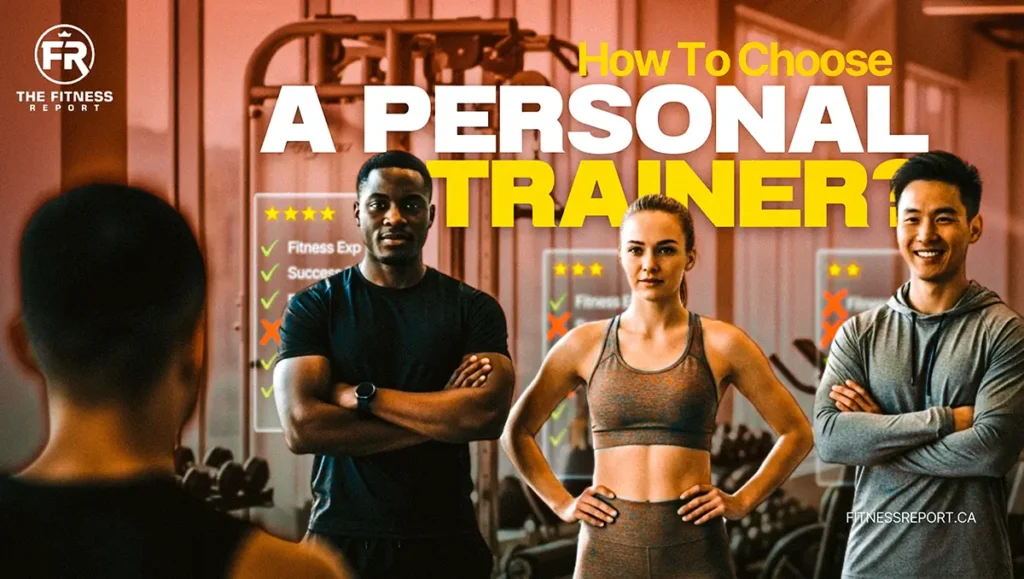
Choosing the best personal trainer for you will come down to your goals and specific preferences.
Some men only prefer to work with male trainers, some women are more comfortable working with a female fitness professional, and others do not care at all.
If you have a specific goal you want to achieve, you may need to narrow your search.
There are personal trainers who only focus on weight loss, Olympic lifting, sport-specific training (hockey, golf, soccer), and others who work with individuals to rehab an old and nagging injury.
If you want to become stronger and faster, try reaching out to an Olympic lifting or a sport-specific trainer.
If you want your shoulder to feel more comfortable or that sharp pain in your knee to go away, look for a rehabilitation specialist.
Vancouver British Columbia Personal Trainers
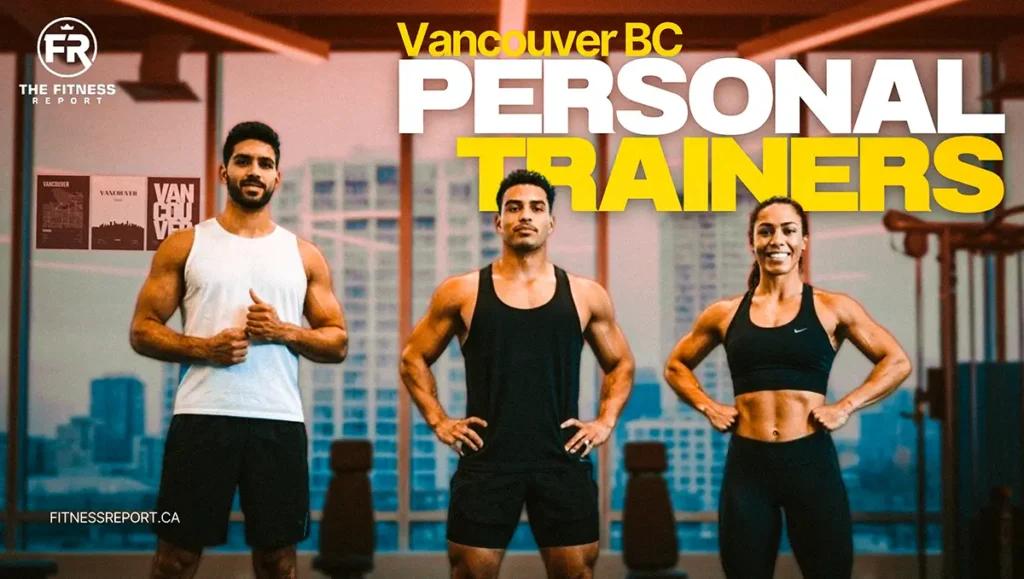
If you are located in the Vancouver area or Lower Mainland, one of my personal training colleagues or I would love to help you reach your health and fitness goals.
Click here to learn more about me.
My PT friends are some of the best at what they do! Send me an email, and I can put you in touch with one of them, depending on your goals.
Collectively, here is what we can help you with:
- Weight Loss
- Muscle Building
- Nutrition Guidance & Macronutrient Tracking
- Lifestyle Overhaul
- Motivation & Accountability
- Injury Rehabilitation
- Natural Bodybuilding/Contest Prep
How Much Do Personal Trainers Cost?
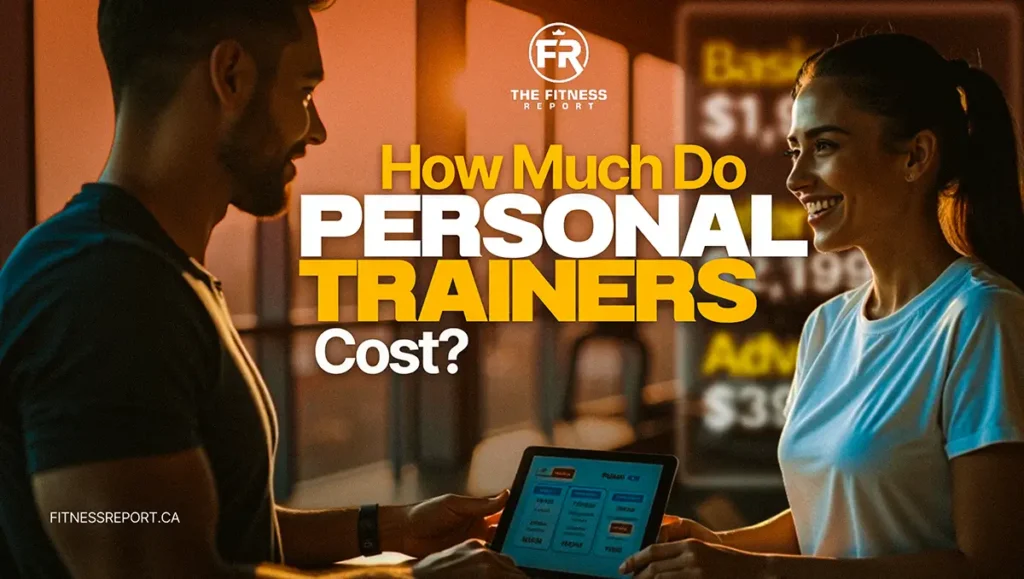
A very common and fair question: How much does it cost to work with a personal trainer? The answer has multiple parts.
Big-Box & Corporate Gyms
Does the personal trainer work for a big-box gym? (Fitness World, GoodLife, Club 16, Anytime Fitness).
If a trainer is employed by a big-box gym, they will have a set hourly rate, which can be anywhere from $60 to $120 per session.
If a trainer is not employed by a large gym, their rates may be a little lower, in the $50 to $90 range.
In-Home Personal Training
In-home trainers are a little different and can be a little more expensive. Instead of meeting a trainer at the gym, they will come to your home and train you there, so it is a bit of a convenience.
If you do not have workout equipment, you will be limited to dumbbells, kettlebells, and bodyweight exercises, but it is still a good option.
Sessions can range anywhere from $85 to $200. Keep in mind, there is usually a $10 to $20 travel fee included in the price.
Personal Training Packages & Groups
If you buy personal training packages, you typically will get a discount. You can either get free training sessions, or, for example, if you buy a package of 10 sessions, you can get them for $65 instead of $75.
If you don’t mind working out with another person or two, you could consider small group training. I think this is a win-win situation; the personal trainer gets their desired hourly rate, and you only pay one-third or one-half the price.
If you train with a parent, friend, or cousin, the session becomes even more enjoyable.
Yes, I know the entire session will not be focused on you, but you will still get quality help from a real professional.
Now this is where things get a little more interesting!
In-person vs. Online Personal Training
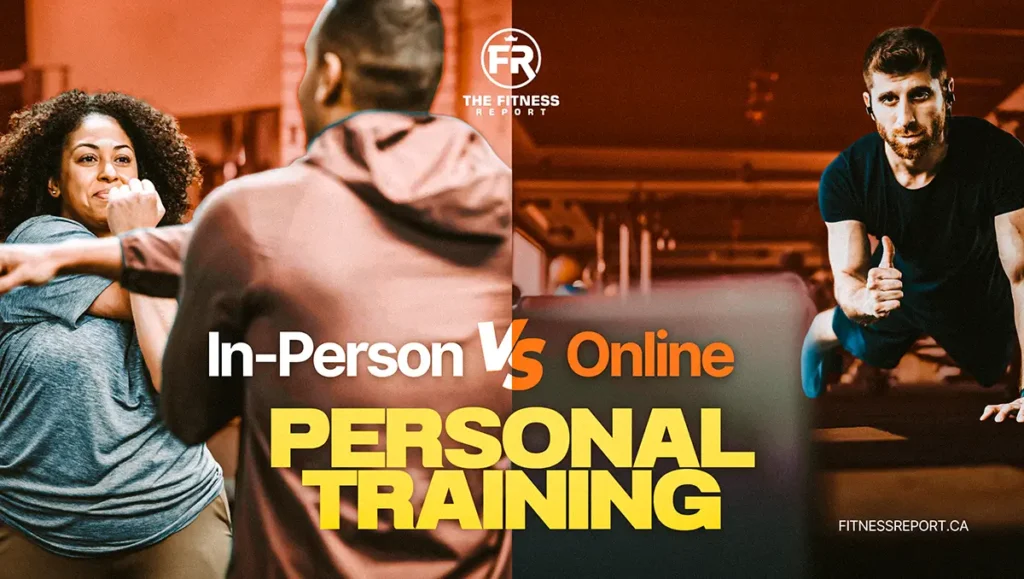
In-person personal training costs were mentioned above, and you can expect to pay anywhere between $50 to $120 per session. Let’s take the average and say it is $85 per session to see an in-person personal trainer.
Personally, I think this is a lot of money for training. Even if you get a 10 or 15% discount, you are still paying over $1,100 per month. And in a year, you are looking at closer to $14,000.
Online Personal Training Costs
Now here is the interesting part!
What if I told you that you could work with an online personal trainer, get one-on-one personalized attention, nutritional advice, and weekly check-ins, and you could save over $9,000? You probably would think I was mad.
If you are comfortable embracing technology, sending voice messages, using FaceTime, and texting back and forth, you can save big.
When you work with an online trainer, you pay around the price of one session per week with an in-person trainer (maybe a little more) and you get to stay in consistent contact with your trainer.
That is cool and convenient.
So, if you don’t mind chatting with your trainer every day, you can pay around $5,000 for a year of high-quality personal training, or you could train in person once a week for an entire year and spend close to $14,000.
And you already know the second the in-person trainer is done with you, their phone goes off, and you are non-existent until your next training session (my opinion).
If you are interested in working with an online personal trainer, please send me an email.
info@fitnessreport.ca
If you have a job with health and fitness benefits, I would not sleep on those. Even getting in a few sessions with a trainer can make a huge difference and set you on a new and healthier path.
PART TWO: Becoming A Personal Trainer
Are Personal Training Certifications Necessary?
Once again, this is a two-part answer.
If you want to work at a commercial gym in Canada or the United States, you will need to become a certified personal trainer from one of the main training institutions (NASM, Canfitpro, BCPTI, ACE, or ISSA), and you will also need to update your CPR certification.
After you have passed your theory and in-person training, you can apply to work at any of the top commercial gyms. Your pay will be determined by your experience and your certifications.
If you are curious about how much personal trainers make in Canada, click here.
Personal Training in Canada Is Not Regulated
In Canada, personal training is not regulated at any level (federal or provincial), and this means you can train people without a certification. But it is a bit of a Catch-22 because although it is not regulated, you need to be certified to work at a gym.
Does this mean you should trust any personal trainer?
No, you obviously need to do your research and ask all of the right questions before you hire anyone for their services.
Can You Be a Good Personal Trainer Without a Certification?
If you are passionate about the industry and know your stuff, you absolutely can be a great trainer and crush it. One of my close friends has been in the industry for 30 years and does not have a certification, but he is more experienced than anyone I know, is practically a walking encyclopedia on human anatomy and kinetics, and is also a published author.
I personally think it is good to be certified at least once in your career; you will learn a lot. To stay certified, you have to continually complete a specific amount of credits each year, and along with that, you must purchase the course. It is great to expand your knowledge, but it gets to be a bit of a money suck.
Personal Trainer Skills
To be a personal trainer you need to have certain skills on top of knowing all about workouts, exercise and nutrition.
Communication & People Skills
This one is super important! You have to be able to communicate well and get along with your clients. This means you have to be able to give excellent directions and have the client follow closely.
You need to be personable and outgoing but at the end of the day, you are their trainer and need keep them accountable to their goals. You can chit chat for a few minutes after the session if you want. Personal training clients pay a lot of money for your services, so you must make the most out of each session.
Motivations Skills
Also super important. You need to keep your clients motivated and focused on their goals they would like to achieve.
When situations get derailed (injury, plateaus, or weight gain) you must be able to guide your clients back on track with enthusiasm. These problems will arise frequently and you must let them know that things will get better and more progress will be made in the future as long as they stay consistent with the plan.
Business & Marketing Skills
If you want to make a living and support yourself as a PT, you must know how to manage and market your business. So what does this mean?
You need to set rates that are high enough to cover all your personal and business expenses & you need to have some sort of marketing strategy to keep clients coming through the door.
You will need to figure out how many clients and at which rate which will allow you to cover everything. If you are a self employed trainer, you will also have to account for your taxes. I suggest you stay organized with your billing and find a good small business accountant!
There are honestly so many different ways to market yourself, and you need to find what works best for you. You can run a website and a Google Business Profile to attract local clients, use one of the many different social platforms (Facebook, Instagram, YouTube, TikTok, Snapchat), or you can do paid advertisements on Google or Meta. Find one method that works best for you and then expand into others.
The Hard Truth of Being a Personal Trainer
Everyone wants to work as a personal trainer until they realize that it is actually not that simple and the money does not roll in.
Here are some hard truths of being a personal trainer that you must accept if you want to succeed in the fitness world:
- Unpredictable Pay: At times, your pay is unpredictable. You may not have a steady flow of personal training clients and therefore, you do not know when your next paycheck is coming in.
- Long Hours: You will have to work all different hours (5 a.m., 11 a.m., 12 p.m., 1 p.m., 8 p.m., 9 p.m.). You have to work when your clients are available; you are on their schedule, not the other way around.
- Sacrificing Weekends: Say goodbye to weekends. There are now only seven business days, and you must be prepared to sacrifice the beloved Saturday and Sunday.
- The Solo Grind: Until you can grow a team or open a gym, you are a one-man show. And what does this mean? It means you are responsible for literally everything (training, workout plans, meal plans, marketing, social media, customer service, and HR).
- Burnout: You will get burnt out. It is not a matter of if, but when. Running a business all by yourself is a lot of work, and it will eventually catch up to you. You will need to find that balance point where you can manage everything (even if it means fewer clients) and have time for yourself and your family.
- Heavy Competition: There is more competition and more personal trainers than ever. With platforms like TikTok, Instagram, and Facebook, you are now facing competition from every single side. This means you will have to carve your own path and stand out a bit. What makes you different and unique from the other 574 trainers in your city?
- Tough Decisions: You’re the boss, and you will have to make some tough and tricky decisions. For example, if you have a client who shows up late or misses sessions, should you fire them? Or you may be dumping money into paid advertisements but not getting any clients—should you cut your losses and walk away or keep trying?
Personal Training Guide: Frequently Asked Questions
Other Gym Articles You May Like:
The Cheapest Gyms In Vancouver: Working Out On A Budget
Kelowna Gyms: Where To Workout
Nanaimo Gyms & Fitness Centers: Start Working Out Today!
Dawson Creek Gyms & Fitness Centres
Is A Personal Trainer Worth It?
How To Become A Personal Trainer In British Columbia
Boulder Shoulder Workout: Get Huge Shoulders
The Best Natural Bodybuilders In The World
Sam Sulek Bodybuilding: From YouTuber To IFBB Pro
Wes Watson: The Most Hated Fitness Guru
The Best Canadian Supplement Brands
Meal Prep Vancouver: The Top Rated Companies

